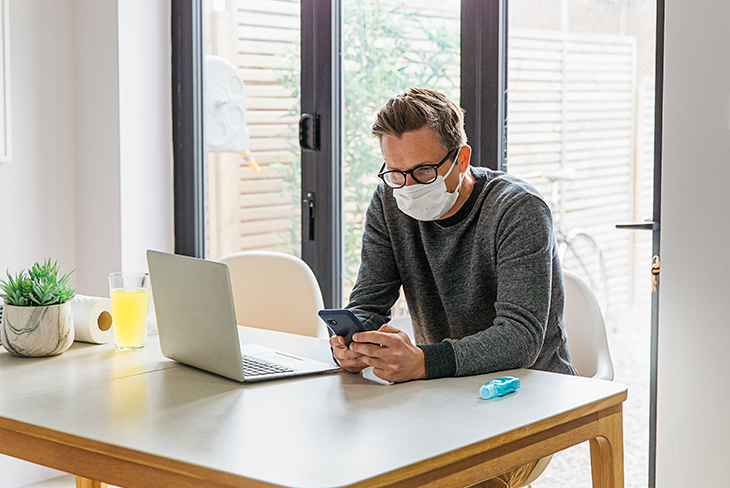How to avoid healthcare misinformation online

Patients are more tech-savvy than ever, often researching symptoms and illnesses online. So, how can you separate fact from fiction when conducting online research and avoid misinformation? Here are our tips.
How much data is too much?
The ubiquity of health information has increased astronomically in the past decade alone, and society can thank the internet, mobile phones and faster processing speeds for that. But how much is too much?
While technology has forever changed how people communicate, users have to be more aware of misinformation and ‘fake news’ since the internet has very limited government or ethical regulations controlling a sizeable amount of its content. This unregulated stream of content creates a problem for those seeking credible information from reputable sources.
In today’s internet-driven world, we are inundated with data.
- 2.5 quintillion bytes of data are created daily.
- There are 5 billion daily Google searches.
- Users watch 4,146,600 YouTube videos every minute.
- 95 million photos and videos are shared on Instagram daily.
The danger of disinformation
One in 20 searches on Google is healthcare-related, according to the search engine, with the most searched-for information being symptom search or specific illnesses. But while the internet can be a useful source of health information, some sites are riddled with mistruths.
According to the medical publication AMA Journal of Ethics, the spread of misleading health information online poses a danger in the following ways:
- It could lead to individual harm due to the nurturing of false beliefs about medicine, disease and prevention.
- It presents a risk to public health.
- It could create problems for healthcare enterprises and the government.
Consumers are increasingly seeking health information via the internet, but how can they determine which health sites to trust?
Accessing accurate information
There are several ways to ensure that you access accurate health information when conducting online research. These include:
- Ensure websites are from a trusted source – government websites and those of respected and reputable medical schools and institutions, and large professional organisations are typically reliable sources of health information.
- Determine whether the article is written and/or reviewed by a reputable medical professional whose credentials are listed or easy to find when researched.
- Establish when the content was written, as you will want the most current health facts.
- Locate the ‘About us’ or ‘Contact us’ pages so you can reach site sponsors/authors if you need to verify any information.
- Be cautious of health information shared on social media platforms like Facebook and Twitter, and content forwarded from instant messaging apps like WhatsApp.
- Always check the original source of the information to determine its scientific accuracy.
- Determine who sponsors the website and what the purpose of the site is (as the sponsor may be trying to sell you a product rather than provide unbiased, accurate information).
- Avoid websites or online articles promising quick fixes, miracle cures and testimonials.
- Be wary of websites created by a single person interested in a particular health topic.
Look for the following letters in the site address to quickly identify the website owner/creator:
- 'gov’ identifies a government agency
- ‘.edu’ or ‘.ac’ identifies an educational institution, like a school, college or university
- ‘.org’ usually identifies non-profit organisations (such as professional groups; scientific, medical or research societies; advocacy groups; or health organisations in South Africa)
- ‘.com’ identifies commercial websites (such as businesses, pharmaceutical companies and sometimes hospitals)
Here’s our list of a few reputable health-information sources:
- For global health news: World Health Organization (WHO)
- For local health developments: National Institute for Communicable Diseases (NICD)
- For mental health resources: The South African Depression and Anxiety Group (SADAG)
- For cancer-related info: Cancer Association of South Africa (CANSA)
- For reputable health and lifestyle information: Life Healthcare News and Info hub
While the above guidelines can help you separate fact from fiction when conducting online research, it is important to remember that the internet should never replace a consultation with a healthcare professional.
Life Healthcare doctors work with patients to keep them informed of their treatment and care, which contributes to better clinical outcomes and a more positive patient experience.
The information is shared on condition that readers will make their own determination, including seeking advice from a healthcare professional. E&OE. Life Healthcare Group Ltd does not accept any responsibility for any loss or damage suffered by the reader as a result of the information provided.

